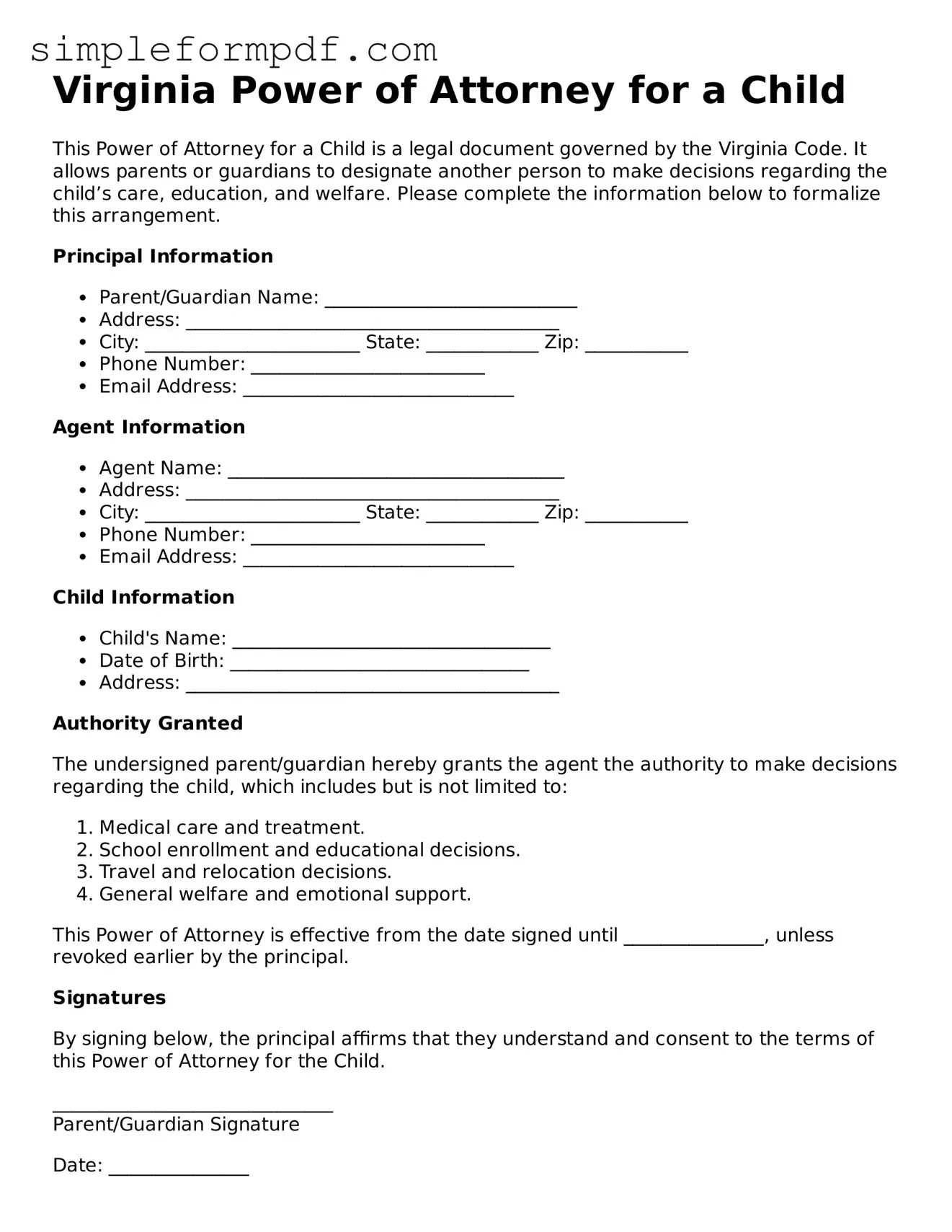Free Power of Attorney for a Child Form for the State of Virginia
The Virginia Power of Attorney for a Child form allows a parent or guardian to grant temporary authority to another adult to make decisions on behalf of a child. This document is essential for ensuring that a child’s needs are met when the parent or guardian is unavailable. To get started, fill out the form by clicking the button below.
Launch Editor

Free Power of Attorney for a Child Form for the State of Virginia
Launch Editor
Need instant form completion?
Finish Power of Attorney for a Child online in just a few minutes.
Launch Editor
or
Download PDF
